Shape Recognition Easy Geometry Worksheets for Ages 3-7
14 filtered results
-
From - To
Discover our engaging "Shape Recognition Easy Geometry Worksheets for Ages 3-7" at Kids Academy! Specifically designed for early learners, these printable worksheets make understanding basic geometric shapes fun and interactive. Through colorful exercises and playful activities, children will effortlessly identify and describe shapes like circles, squares, triangles, and more. Perfectly suited for preschool and early elementary students, our worksheets support the development of critical learning skills, including visual discrimination and fine motor coordination. Empower young minds with confidence in geometry by exploring a variety of hands-on activities tailored to make learning shapes an enjoyable adventure!
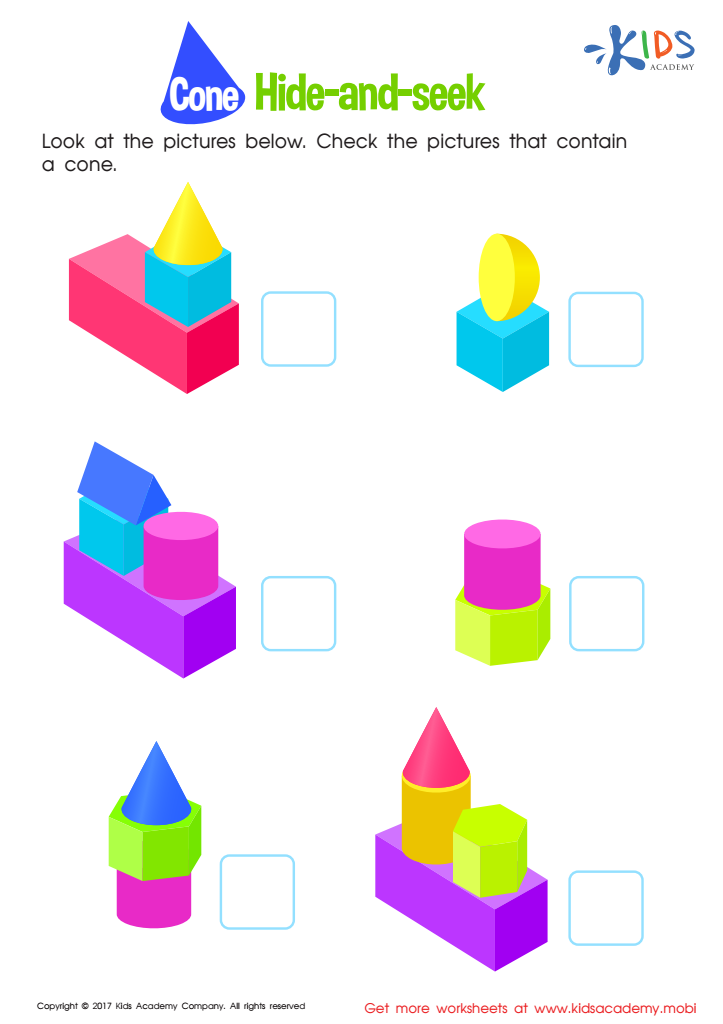

Cone Hide-and-Seek Worksheet
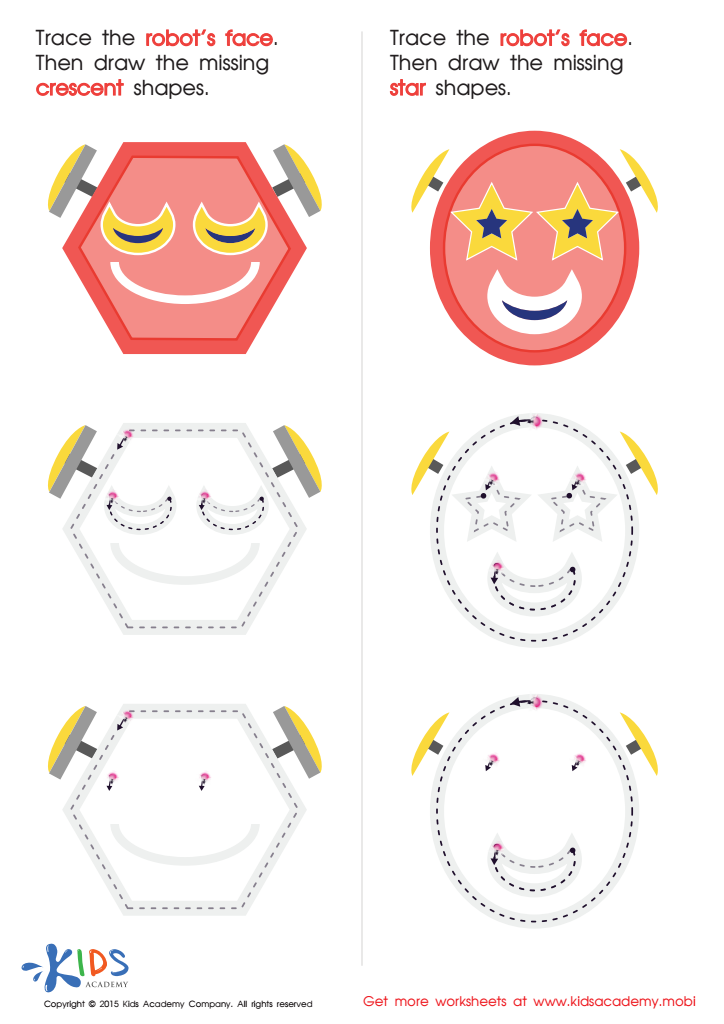

Composing a Robot's Face of Crescents And Stars Worksheet
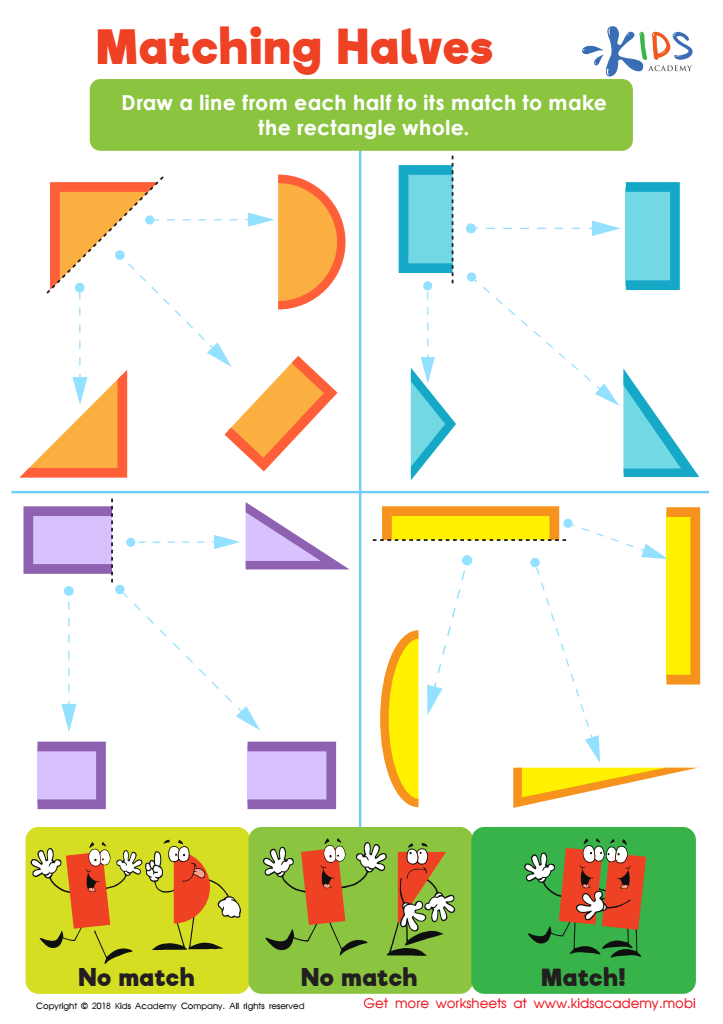

Matching Halves Worksheet


Faces of 3D Shapes Worksheet
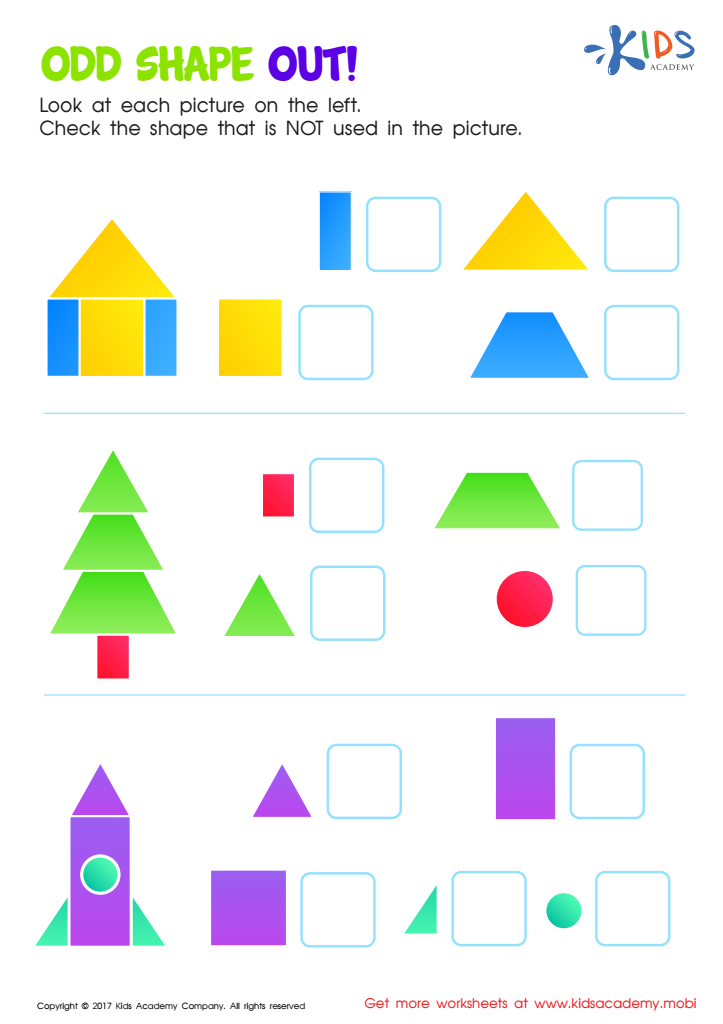

Odd Shape Out Worksheet for Grade 1
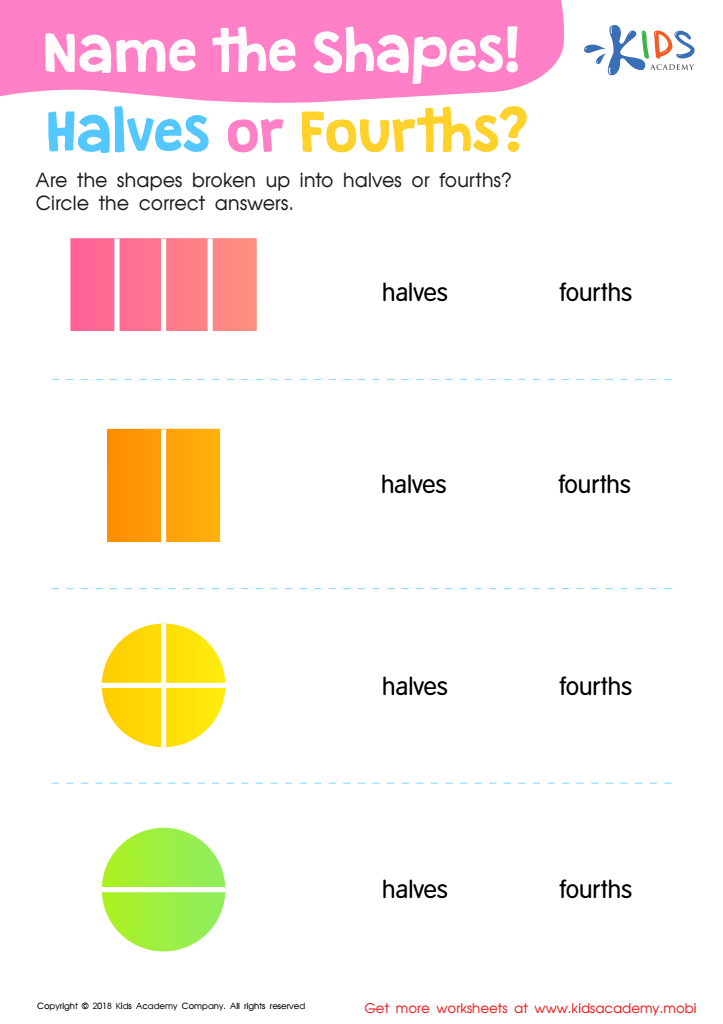

Name the Shapes Halves or Fourths? Worksheet
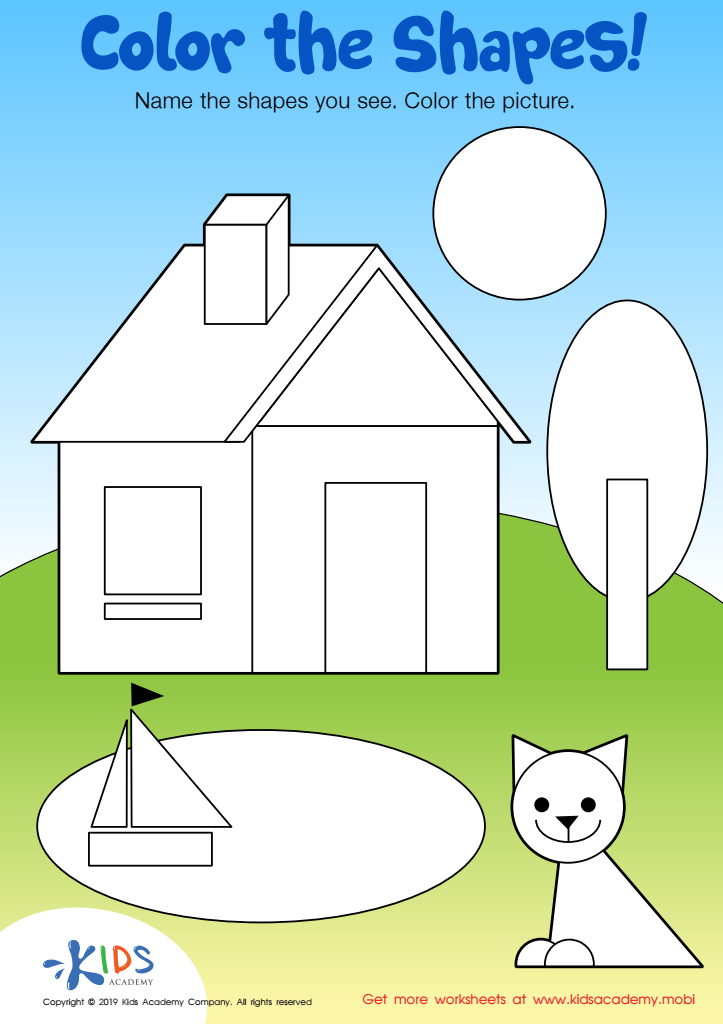

Color the Shapes Worksheet
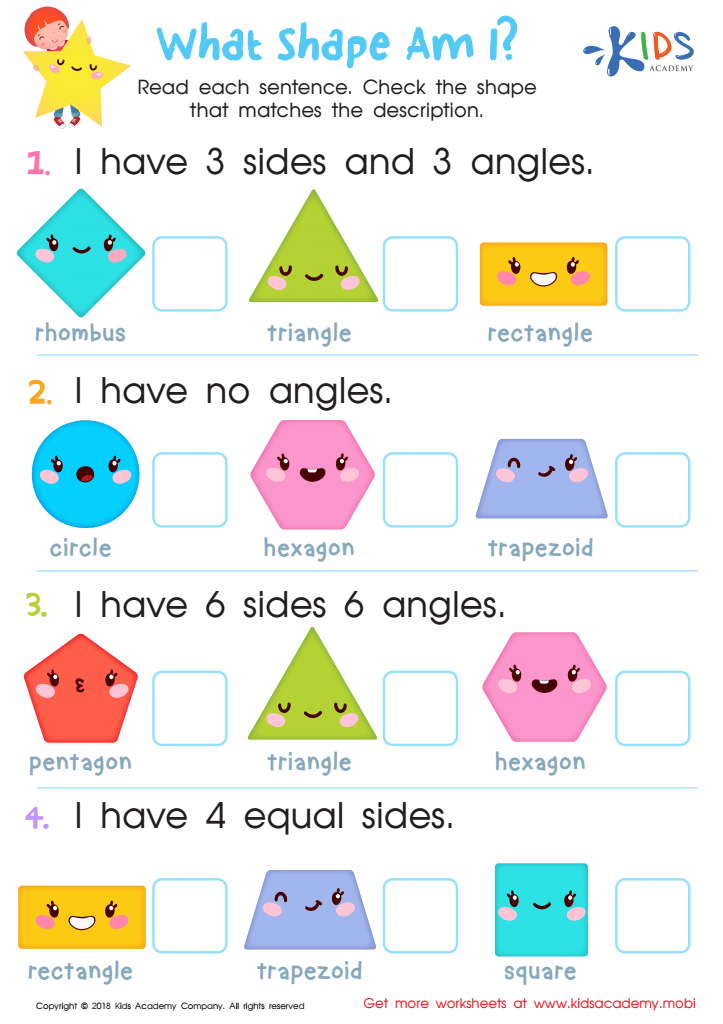

What Shape Am I? Worksheet
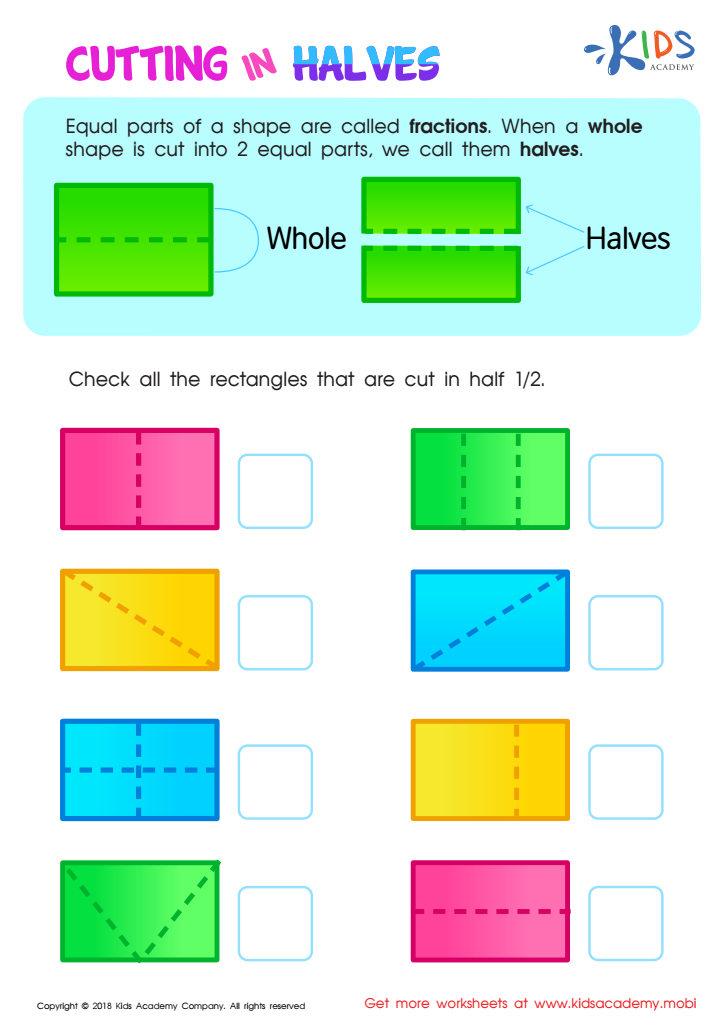

Cutting in Halves Worksheet
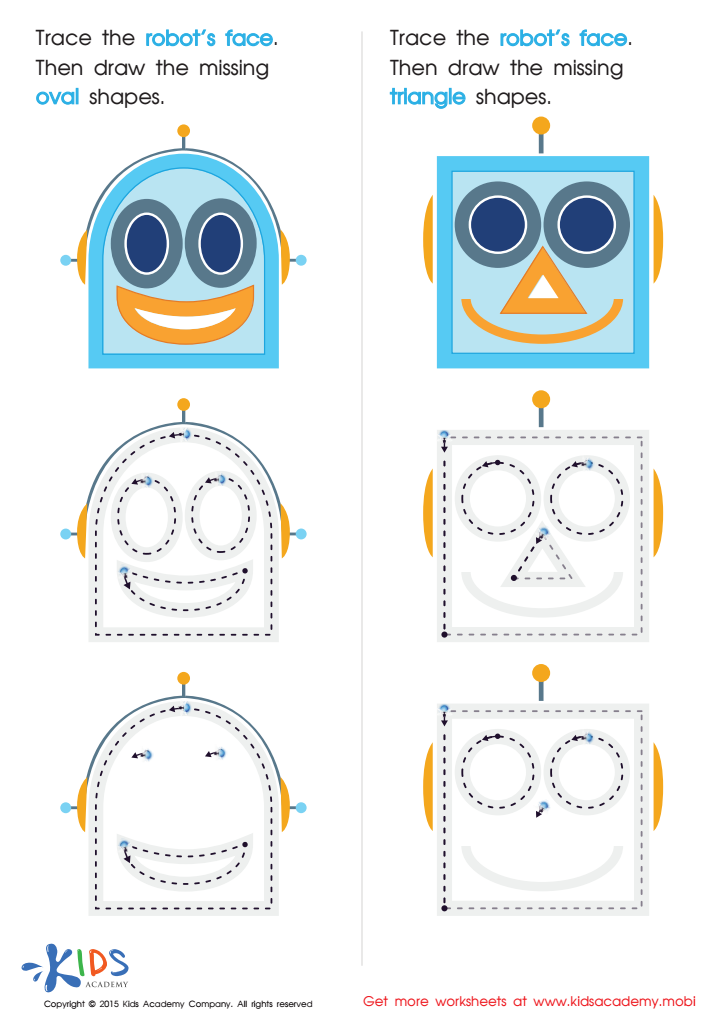

Drawing Ovals And Triangles with Fun Printable
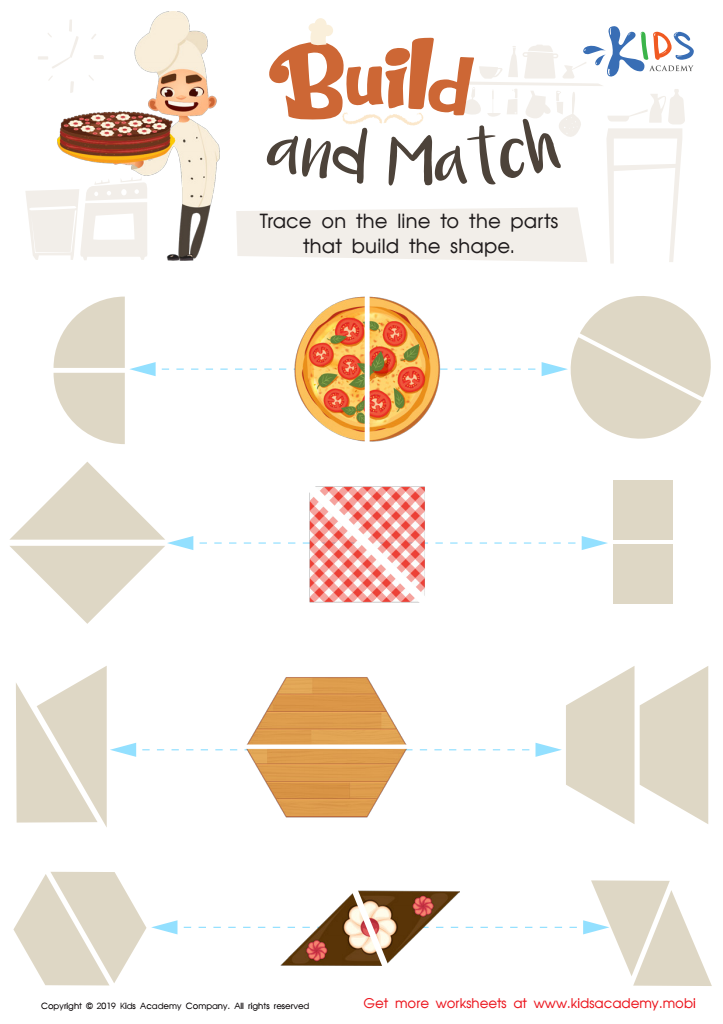

Build and Match Worksheet
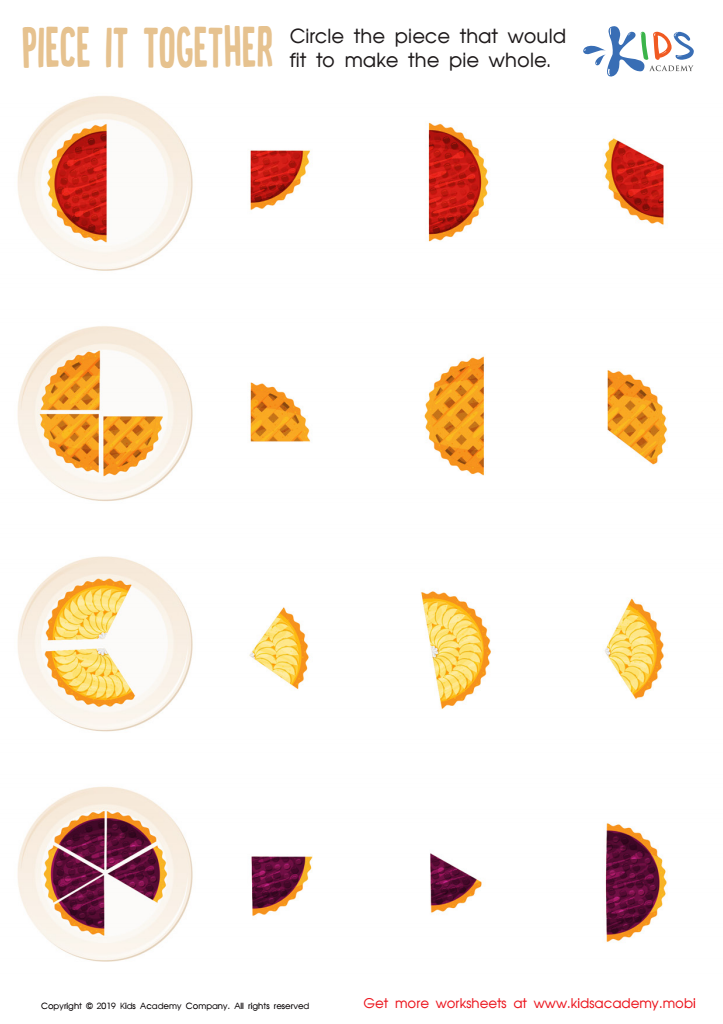

Piece it together Worksheet
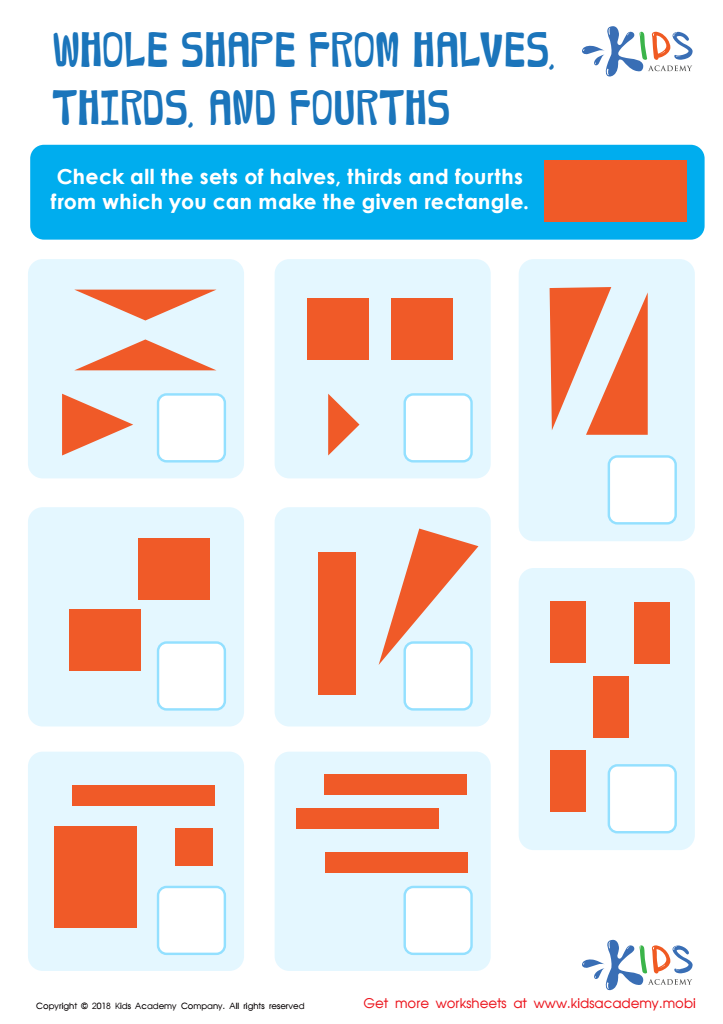

Whole Shape from Halves, Thirds and Fourths Worksheet
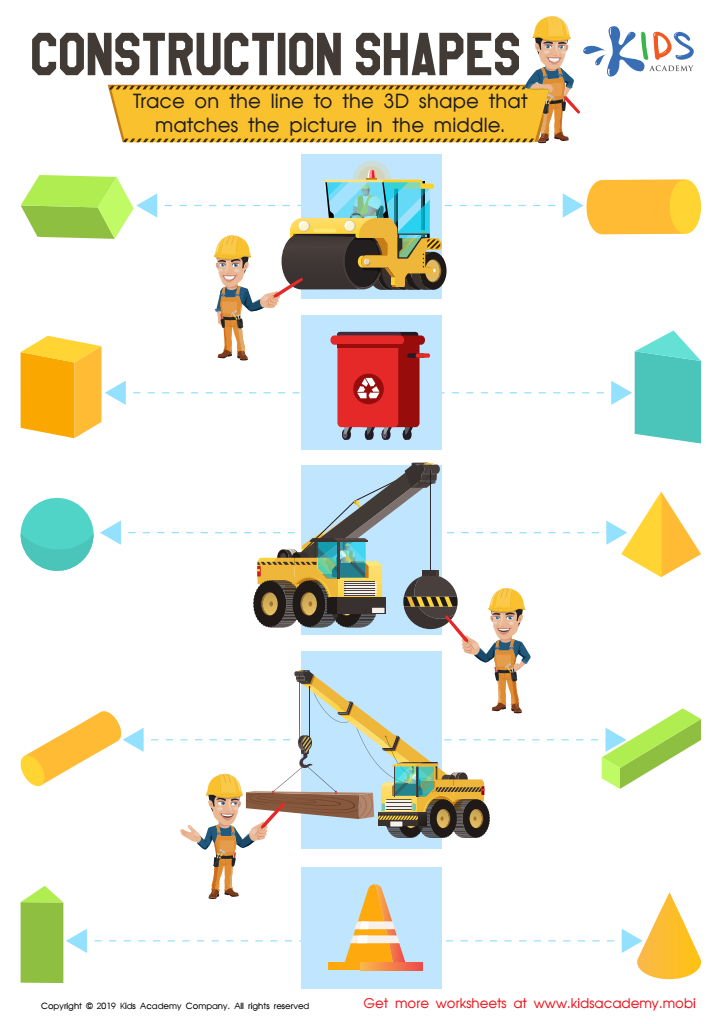

Construction Shapes Worksheet
Shape recognition is a fundamental skill that parents and teachers should prioritize for children ages 3-7 because it serves as the cornerstone for early geometric learning and overall cognitive development. At this formative stage, children’s minds are highly receptive to new information, and recognizing shapes helps them understand the physical world around them.
Shapes are more than just circles, squares, and triangles; they are building blocks for more complex concepts in both math and language. Through shape recognition, kids enhance their spatial awareness, a critical thinking skill that allows them to comprehend how objects fit together in space. This is not only essential for geometry but also for everyday tasks like fitting objects into containers or navigating a room.
Furthermore, identifying, comparing, and describing shapes fosters vocabulary development. When children verbalize what they observe, they improve their communication skills and descriptive language. Additionally, recognizing patterns and shapes aids in problem-solving — skills that are crucial for academic success in numerous subjects including math, science, and art.
Engaging young learners in shape recognition activities, such as sorting games and drawing exercises, lays a strong foundation for more intricate concepts. Early mastery of these skills builds confidence and triggers curiosity, setting the stage for lifelong learning and academic success.
 Assign to My Students
Assign to My Students


























